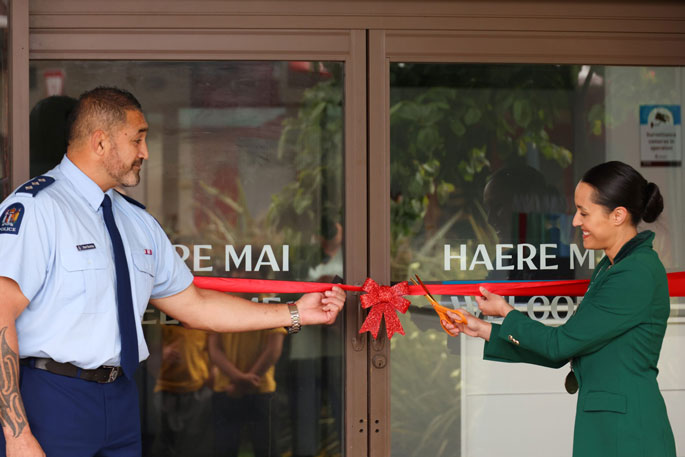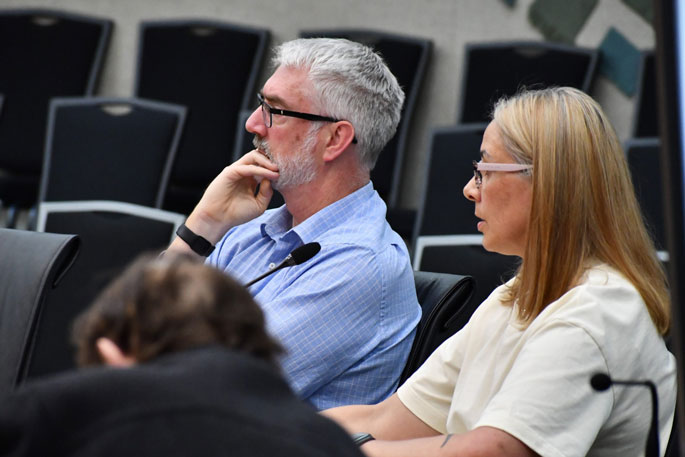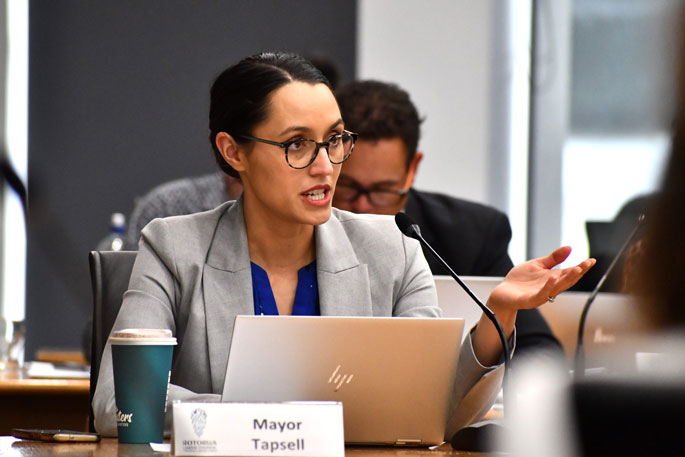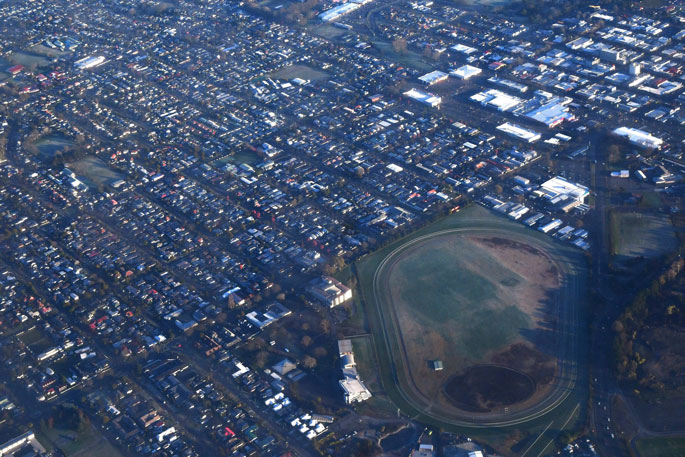A year ago Rotorua Lakes Council opened an Inner-City Community Safety Hub with police, announced following public after-school attacks on teen girls near a CBD bus stop.
Now it’s starting to extend its community safety measures into the suburbs.
Local Democracy Reporter Laura Smith sat down with Mayor Tania Tapsell and senior council official Jean-Paul Gaston to find out more.
Crime-fighting initiatives that have helped reduce violence in Rotorua’s CBD by almost 40% in a year are coming soon to more suburbs, including an expanded CCTV camera network and mobile security patrols.
The inner-city crackdown by Rotorua Lakes Council and police began last year after a series of attacks on students near a CBD bus stop.
 Rotorua area commander inspector Herby Ngawhika (left) and Rotorua Mayor Tania Tapsell cutting the ribbon at the new Rotorua Inner City Community Safety Hub. Photo / Supplied.
Rotorua area commander inspector Herby Ngawhika (left) and Rotorua Mayor Tania Tapsell cutting the ribbon at the new Rotorua Inner City Community Safety Hub. Photo / Supplied.
Along with opening the Inner-City Community Safety Hub, more resources were put into CCTV, contracted foot patrols swapped for vehicle-based security, Safe City Guardians numbers grew and police hired a second CBD-based community constable.
There was also a maintenance focus, including refreshing CBD bins and getting street lights working.
Destination development group manager Jean-Paul Gaston shared a plan to further the initiatives at a Community and District Development Committee meeting on Wednesday.
He said there was a view community safety was not part of a council’s core business.
“But it certainly is.”
Successes of its strategy were down to the partnerships with police, Māori Wardens, Bay of Plenty Regional Council, retailers and community groups, he said.
 Rotorua Lakes Council destination development group manager Jean-Paul Gaston and community safety and regulatory services director Mihikore Owen. Photo / Laura Smith.
Rotorua Lakes Council destination development group manager Jean-Paul Gaston and community safety and regulatory services director Mihikore Owen. Photo / Laura Smith.
The council would continue to focus on the CBD but stretch that area to include largely residential suburbs Glenholme and Fenton Park to the south. No firm date was set for phase two becoming operative, but it could potentially be November 1.
It would look to build its CCTV network in the suburbs using the $100,000 a year for expansion and $65,000 for renewals allocated in the Long-Term Plan and make a camera strategy with police.
It was considering community safety in setting bylaws around issues such as dog control and alcohol harm.
Community safety and regulatory services director Mihikore Owen said it would maintain a “high-care approach”.
“An inner city that is clean, safe and has very little lawlessness sends the message that this location is routinely monitored and criminal acts are not tolerated.”
Staff moved on rough sleepers and connected them with social services, and the council was addressing graffiti.
Gaston said a recent increase in graffiti reports was from staff logging incidents they dealt with.
A “graduated response model” would continue to be used. Guardians, security and Māori wardens first educate and encourage people against using unwanted behaviours, and if that failed, it was escalated to police for enforcement.
Councillor Rawiri Waru noted trespass reports were up 6% in the past four months compared with a year ago.
Owen said this was a positive example.
“When people are being identified as trespassing, we’re holding [them] to account.”
Violent offences were down 38%, dishonesty down 28%, property damage down 33% and drug and anti-social offences dropped 4.8% in the same period.
Mayor ‘excited to take that next step'
Local Democracy Reporting interviewed Gaston and Mayor Tania Tapsell about the plan.
Tapsell said the community safety focus had been on the inner city because of social issues the community and businesses were experiencing.
“We’re excited to take that next step further and make sure that Rotorua is a safer place for everyone.”
Tapsell said when the council prioritised community safety, there were issues around social issues linked to emergency housing motels, which needed quick resolutions, but there had always been a desire “to make sure that we’re not leaving our neighbourhoods behind”.
It worked with police to target violence and property damage, and track progress.
A second community constable was “a massive win” she said, as was the New Zealand Transport Agency’s gifting of CCTV cameras some feared the council would lose access to.
She said the bus stop attacks left the community devastated that young people were hurt in a public space where they should be safe.
“There has been a concerted effort from all of us, council, police, security, to make sure that bus stop which children from all our schools use is safe, which is why you see a presence there every day at drop-off times.”
Gaston noted there was ongoing support from the Bay of Plenty Regional Council for bus stop and route safety.
 Rotorua Mayor Tania Tapsell at an October meeting. Photo / Laura Smith.
Rotorua Mayor Tania Tapsell at an October meeting. Photo / Laura Smith.
He said the library area, where the attacks happened, had improved but needed constant surveillance.
Tapsell said suburban cameras would focus on public spaces. Privacy was important to the community and the cameras would only be used for crime prevention and capturing those responsible, she said.
“We have had great results from that, such as catching people within 24 hours of undertaking ram raids or theft of property. It wouldn’t have been possible without the cameras.”
She said local businesses and dairy operators supported their use.
Gaston encouraged people to submit requests for service so the council knew where to put maintenance resources.
LDR is local body journalism co-funded by RNZ and NZ On Air.




0 comments
Leave a Comment
You must be logged in to make a comment.